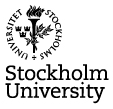Save a third for the birds
Seminar with Henrik Österblom, 21 February 2012
 Powerpoint, 23.9 MB.
Powerpoint, 23.9 MB.Seabirds form an important link between human societies and marine ecosystems and are
some of the best and most easily measured indicators when it comes to diagnosing the
health of the world's marine ecosystems.
Seabirds prey on marine resources that are increasingly sought after in the global marketplace, with a rapidly growing demand for high value protein. In the most comprehensive study ever undertaken, an international group of scientists, including centre researcher Henrik Österblom, has shown that many seabird species decline strongly when the food available for them in the ocean declines below a third of the maximum amount recorded.
Understanding how seabird species can be sustained while securing food security for a growing human population is a massive challenge, highlighting the necessity of making trade-offs between different services.
This talk will describe the social-ecological role of seabirds and forage fish, using global data-sets on their interactions. The talk will investigate predator-prey relationships and critical tipping points analogous to the planetary boundaries concept and explore the potential applicability of these findings in the Anthropocene.
About Henrik Österblom
Henrik Österblom holds a position as associate senior lecturer in environmental sciences at Stockholm Resilience Centre, with a particular focus on ecosystem-based management. He is a joint theme leader for Governance and ecosystem management of coastal and marine systems.
His research is focused on seabirds, food-web interactions, trophic cascades and ecosystem regime shifts, and governance of marine resources.

Audio version
Vacancies | Contact | Environmental policy | Cookies
Stockholm Resilience Centre
Stockholm University, Kräftriket 2B | Phone: +46 8 674 70 70 | info@stockholmresilience.su.se
Organisation number: 202100-3062 | VAT No: SE202100306201


